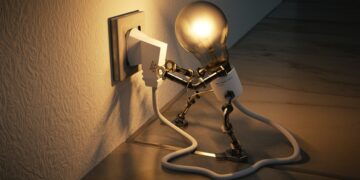Shining Light on Savings: A Budget-Friendly Guide to Installing Solar Panels
With the rising costs of electricity and a growing concern for the environment, many homeowners are turning to solar panels as a cost-effective and eco-friendly energy solution. However, the upfront cost of installing solar panels can be daunting for some. In this article, we will discuss how you can save money and make the switch to solar power with our budget-friendly guide to installing solar panels.
Why Solar Panels?
Solar panels harness the power of the sun to generate electricity for your home. By installing solar panels, you can reduce or even eliminate your reliance on traditional grid electricity, which can save you money on your monthly utility bills. Additionally, solar panels are a clean and renewable energy source, which can help reduce your carbon footprint and contribute to a more sustainable future.
Calculating Your Energy Needs
Before you begin the process of installing solar panels, it’s important to calculate your energy needs. This will help you determine how many solar panels you will need to generate enough electricity to power your home. You can calculate your energy needs by looking at your past utility bills and determining your average monthly energy consumption.
Once you have an estimate of your energy needs, you can use an online solar calculator to determine how many solar panels you will need to meet those needs. Keep in mind that factors such as the size of your roof, the angle of your roof, and the amount of sunlight your home receives will impact the efficiency of your solar panels.
Choosing the Right Solar Panels
When it comes to choosing the right solar panels for your home, there are a few key factors to consider. The efficiency of the solar panels, the warranty offered by the manufacturer, and the cost of the panels are all important considerations. Additionally, you will need to decide between monocrystalline and polycrystalline solar panels, each of which has its own advantages and disadvantages.
It’s also important to consider the installation process when choosing solar panels. Some solar panels are designed for easy DIY installation, while others may require professional installation. Be sure to research different brands and models of solar panels to find the best option for your home.
Financing Your Solar Panels
While the upfront cost of installing solar panels can be significant, there are several financing options available to make solar power more affordable. Many solar panel installers offer financing plans that allow you to pay for your solar panels over time, rather than all at once. Additionally, there are government incentives and rebates available for homeowners who install solar panels, which can help offset the cost of installation.
Another option for financing your solar panels is to take out a solar loan. Solar loans are specifically designed to help homeowners finance the cost of solar panel installation, and typically have lower interest rates than traditional loans. Be sure to explore all of your financing options to find the best solution for your budget.
DIY vs. Professional Installation
One of the biggest decisions you will need to make when installing solar panels is whether to do it yourself or hire a professional installer. DIY installation can be a cost-effective option for homeowners who are handy and have experience with home improvement projects. However, professional installation is recommended for those who are not comfortable working on their roof or electrical system.
Professional installers have the knowledge and experience to ensure that your solar panels are installed correctly and safely. Additionally, many solar panel manufacturers offer warranties that are only valid if the panels are installed by a professional. While professional installation may cost more upfront, it can save you time and hassle in the long run.
Maintaining Your Solar Panels
Once your solar panels are installed, it’s important to properly maintain them to ensure they continue to generate electricity efficiently. Regular cleaning and inspection of your solar panels can help prevent dirt and debris from blocking sunlight and reducing their efficiency. Additionally, you may need to replace the inverter or other components of your solar panel system over time.
Be sure to follow the manufacturer’s recommendations for maintenance and schedule regular inspections with a professional to ensure that your solar panels are in good working order. Proper maintenance can help extend the life of your solar panels and maximize their energy production.
Conclusion
Installing solar panels can be a cost-effective and environmentally friendly way to power your home. By following our budget-friendly guide to installing solar panels, you can save money on your utility bills and reduce your carbon footprint. Remember to calculate your energy needs, choose the right solar panels, explore financing options, and consider professional installation to ensure a successful transition to solar power.
With the right planning and preparation, you can enjoy the benefits of solar power for years to come. Start shining light on savings today with solar panels for your home.












